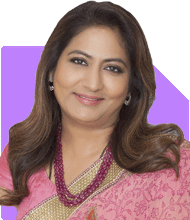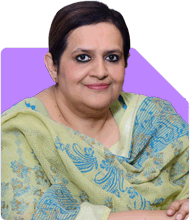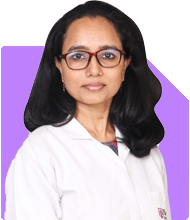Hi Sir, I am 47 year old with 3 kids aged 11 yr dayghter and twin sons aged 6 years. I have around. I want to retire in 3 years due to health issues. After retirement me and wife will work part time and around monthly 1 lakh combined. I have monthly expenses if around 2 lakhs now. Please advise what corpus i should have to able to retire in 3 years
Ans: You are 47 years old. You have a daughter aged 11 and twin sons aged 6. You plan to retire in 3 years due to health issues. After retirement, you and your wife will earn around Rs. 1 lakh per month from part-time work. Your current family monthly expense is around Rs. 2 lakhs.
Your situation is serious and needs careful planning. I appreciate that you are thinking well in advance. Let us look at your situation in full detail now.
Assessing Your Retirement Timeline
You want to retire at 50. That’s 3 years from now.
That gives limited time to build a full retirement corpus.
After that, you and your wife plan to earn Rs. 1 lakh per month together.
Your expenses are Rs. 2 lakh per month now. This will rise with inflation.
So, you need to fill the gap of at least Rs. 1 lakh per month post-retirement.
That gap will also grow each year due to inflation.
You also have three children. Their education and future needs must be planned.
With three young kids, your financial responsibility will last for the next 15 to 20 years.
Understanding the Expense Gap
Your expenses are Rs. 2 lakh monthly now. This is Rs. 24 lakh annually.
After retirement, part-time income will cover Rs. 1 lakh monthly.
You need Rs. 1 lakh more every month from your savings.
That’s Rs. 12 lakh per year. But this amount will grow with inflation.
In 10 years, this could easily be around Rs. 20 lakh a year or more.
In 20 years, it can be around Rs. 35 lakh or more annually.
So, your retirement corpus must be big enough to cover this rising gap.
It should also last at least 30 years, as both you and your wife may live till 80 or more.
What Should Be Your Retirement Corpus
To cover Rs. 1 lakh monthly shortfall, you need a strong investment base.
That base should grow and generate income for 30 years.
You also need to plan for children’s schooling, college, and marriage.
So, your total retirement corpus should be built with multiple goals in mind.
You may need at least Rs. 6 crore to Rs. 7 crore total corpus by age 50.
This will help you cover your lifestyle gap and also children’s future needs.
The final amount will depend on inflation, market returns, and disciplined investing.
Breaking Down Your Future Expenses
1. Lifestyle Needs
You need Rs. 2 lakh monthly today. This will rise.
After retirement, inflation will push this to Rs. 3.5 lakh to Rs. 4 lakh in 15 years.
That means higher withdrawals every year.
2. Children’s Education
Your daughter will go to college in 6 years.
Your twin sons will go to college in 11 to 12 years.
Education inflation is very high, around 8% to 10% yearly.
Private college and higher studies can cost Rs. 50 lakh to Rs. 1 crore in future.
3. Health and Medical Needs
Health issues are already a concern. Medical costs rise fast.
A single hospitalisation in the future can cost Rs. 15 lakh or more.
You must keep a separate medical emergency fund.
4. Travel, Leisure, and Emergencies
Retirement is not just about needs. It should also include wants.
You may want to travel or support family in emergencies.
Keep a buffer for these lifestyle goals.
Creating a 3-Bucket Investment Strategy
Bucket 1: Emergency and Medical Fund
Keep 12 to 18 months of expenses in this bucket.
That means Rs. 25 lakh to Rs. 30 lakh in liquid funds.
This bucket should not be touched for regular income.
Use it for medical, health, and sudden family needs.
Bucket 2: Income and Safety Bucket
This gives regular income after retirement.
Invest here in low-risk and balanced funds.
This bucket must cover 8 to 10 years of shortfall.
It must be reviewed every year and rebalanced.
Withdraw monthly through SWP (Systematic Withdrawal Plan).
Bucket 3: Growth Bucket
This is for long-term income.
It must stay invested for the next 10 to 15 years.
Use only actively managed equity mutual funds.
Don’t invest in index funds. They follow the market and offer no safety in a fall.
Actively managed funds are better for retirement. They reduce risk and give better return with guidance.
This bucket will support your income in the later years of retirement.
Additional Planning Tips for a Complete Strategy
1. Insurance Review
Check your health insurance. Buy a super top-up if possible.
If you have any traditional policies like LIC endowments or ULIPs, evaluate surrendering them.
Reinvest that money in mutual funds via Certified Financial Planner.
2. Avoid Index and Direct Funds
Index funds are unmanaged. They don’t protect you in a downturn.
Direct funds have no advisor support. You may exit at the wrong time.
Invest through regular mutual funds with Certified Financial Planner.
You get discipline, emotional support, and regular reviews.
3. Tax Planning
After retirement, plan all withdrawals smartly.
Equity mutual fund LTCG above Rs. 1.25 lakh is taxed at 12.5%.
STCG is taxed at 20%.
Debt mutual fund gains are taxed as per your income tax slab.
Plan withdrawals in phases to manage tax.
Use SWP instead of lump sum withdrawal.
4. Estate Planning
Write a clear Will. Register it if possible.
Add nominations to all financial accounts and investments.
Discuss with your wife about all assets and accounts.
Educate your children slowly about financial basics.
5. Spending Discipline
After retirement, control lifestyle inflation.
Avoid overspending in early years.
Keep budgets for kids' education, personal care, and travel.
Review expenses every quarter.
Talk to your wife and plan joint financial goals.
How to Reach Rs. 6–7 Crore in 3 Years
This is a very short time.
You must save aggressively now.
Cut all unwanted expenses.
Increase monthly investments to the maximum.
Invest only in actively managed equity mutual funds through regular route.
Don’t keep too much in savings or FDs.
Avoid real estate as it is illiquid and low-return.
Rebalance investments every year with the help of Certified Financial Planner.
Finally
You have only 3 years to build your corpus.
You also have a big responsibility of three children.
You will work part time after retirement, which gives some cash flow.
But you must plan very carefully and very thoroughly.
Create three investment buckets to manage needs properly.
Use only actively managed mutual funds, not index or direct funds.
Avoid risky shortcuts and always review plans every year.
With health concerns and young kids, long-term planning is critical.
Your retirement is not the end of income. It is the beginning of financial wisdom.
Best Regards,
K. Ramalingam, MBA, CFP,
Chief Financial Planner,
www.holisticinvestment.in
https://www.youtube.com/@HolisticInvestment





























